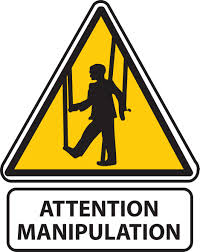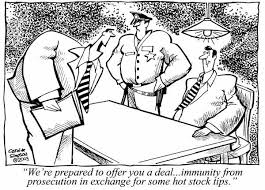To quote from an article by Oscar Williams-Grut in the Independent, 16th March 2015
Britain’s financial regulator is facing mounting pressure to reveal details of its investigation into a “deeply worrying” allegation of market abuse that left hundreds of retail investors with huge losses.
Vince Cable, the Business Secretary, and Andrew Tyrie, chairman of the Treasury Select Committee, have written to the Financial Conduct Authority (FCA) calling for information on its response to the share price collapse of the insurance outsourcer Quindell (LON:QPP) last April. A number of other MPs and hundreds of investors have also petitioned the watchdog.
The former secretary of state Peter Hain has also written to the regulator, and this week submitted two questions to the Treasury on the matter. He told The Independent: “It is scandalous that thousands of Britons who invested in Quindell, many of whom put their life savings into this company, have seen the value of their shares plummet. The FCA has failed these investors abysmally and continues to duck its responsibilities, with the Chancellor unwilling to intervene.”
For full transcript of the article:
The FCA response is very predictably mute and it is very appropriate that pressure is applied in Parliament to get answers from the financial regulator which is funded by the very organisations it is supposed to police.
“Shorting” the practice of selling shares in companies where you don’t need to actually own the shares is not against market rules, but there is evidence that such a practice is used as a tool to manipulate the market in a company’s share. This is certainly not compliant with market rules.
There are instances in the US where the SEC has secured convictions where they have proven that the actor(s) purpose was to manipulate the share price by intentionally disseminating false rumour allied with short selling.
So why do Quindell shareholders allege market abuse? To answer this question we need to make a comparison to the US precedents.
In layman’s terms their experience tells us that if one or more parties take short positions in a company with “Sound fundamentals” and if this is accompanied by a campaign of mis-information, then there is cause to believe that the intention is to manipulate the market..
So what of the case of Quindell. The facts are as follows:
- Three offshore hedge funds took short positions in Quindell on 24th April 2014. One was hiding its identity using Cayman Islands shell company. A little suspicious you could say.
- The same day an anonymous US research company issued a report with numerous negative allegations on Quindell. The report proved to be a fabrication of innuendo and untruths.
- On April 24th a social media campaign erupted spreading negative messages about Quindell
- This was sadly, supported by several elements of the UK based media, including a feature article in the Sunday Times on April 27th. Remarkable timing.
- The effect on the share price was dramatic, with circa 1 billion being wiped off the value of the company in 1 day. This was solely due to the panic generated in the market.
- The campaign of mis-information continued through 2014 with accusations such as:
- The company would run out of cash by Christmas 2014
- The company was about to lose a major contract
- The company had committed fraud
- The company was worth zero and was going bust
Now the reason I describe this as mis-information is that the none of this has proved true.
- We also witnessed discussions on social media by the “detractors” claiming inside information from within the company and its broker. That in itself is contrary to market regulations.
The consequences were that the share price continued to slide as the negative information poisoned investors’ confidence in the company
So let’s come back to the acid test to the question: Is this legitimate shorting of a company who has “real issues”, or is it an orchestrated campaign to drive the share price down for financial gain by the shorting syndicate?
To answer this question we need to evaluate the current company position based on known facts.
Today we know that Quindell is in talks with Slater and Gordon to dispose of one of its operating divisions. We have been told by Quindell that discussions are ongoing and that various options have been discussed; one of which values the business unit being sold at between 800-900M. S&G have carried out due diligence so they clearly see no issues in the business. This shows that the entire business has an indicative worth of something like 1 to 1.5B.
Quidell have also been questioned on their accounting practice; specifically the topic of accrued income. Although the Auditors KPMG raised no issues on this; the board of directors commissioned PwC to provide a second opinion. So far there has been no official feedback released, although the report is complete. Clearly Quindell would have been obliged to notify the markets if anything had been found that would be price sensitive. They have not made any such announcements so it is unlikely there will be any major impacts.
In addition to the above, there has been no update on the “Trading Update” the company gave on 12th Jan 2015. This stated robust trading in all divisions and made reference to revenue and earnings being dependant on the PWC review. It also reported net Cash inflow of 13M for H2 2014 and that cash was sufficient to deliver on management’s current plans. If there had been any change, then the company would have been obliged to notify the market.
This would indicate that the 2014 results will be roughly in line with the forecasts and that the cash position remains satisfactory.
So is the company a “Basket case” as alleged by the Short syndicate? definitely not. This is reflected in the share price which has climbed from a low of 0.24 to 1.20 (March 2015). Investor confidence is still shaky as the “Shorting” activity is still active.
When the S&G activity concludes and the 2014 results are confirmed, it will be no surprise if the share price recovers to a level approaching the pre April 2014 levels.
If this happens we surely must conclude that there is a case to answer with regard to “market abuse” and I for one will be wanting answers from the FCA.
A small number of private investors who have retained or increased their investment during the past year will be well rewarded. On the other hand it is too late for others who sold out and lost money based on what may yet be proven to be market manipulation.
An what of Quindell; undoubtedly this short attack has had an impact if only in terms of Management distraction. It could also have impacted on its speed of entry into new markets. The signs are it will recover and push on after what may be proved to be an attack by greedy and unscrupulous hedge funds.
Note: Quindell is not the only UK company that has been subject to such activity. Several other fast growing and successful AIM listed companies have the same experience. It seems the UK is a popular “Hunting Ground” for foreign hedge funds; probably due to the weak regulation.



